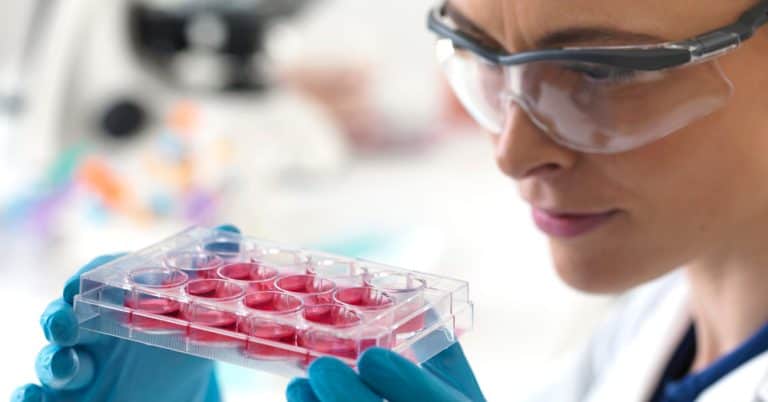The health of each person depends largely on the amount of water in their body. Maintaining water balance helps maintain normal blood pressure, helps the kidneys function, and maintains normal body temperature. In addition, water is essential for transporting nutrients to all tissues and removing waste from the body.
Functions of water in the body
Water performs a number of vital functions:
- As a solvent, it provides transportation and metabolism of substances.
- It participates in chemical reactions such as digestion.
- Serves as a building material, forming part of cells and tissues.
- Regulates body temperature through perspiration.
- As a lubricant, it ensures the proper functioning of joints.
Additionally, maintaining water balance is crucial for overall health, as it helps regulate hydration levels, ensuring that the body functions optimally.
Risks of disrupted water balance
So, fluid is the main source for the vital activity of any organism. Lack of even 1% of fluid can significantly worsen the condition of a person. Whereas dehydration by 10-15% can lead to irreversible consequences.
The main clinical manifestations on the basis of which dehydration should be suspected include:
- Dry mouth;
- Cracked, ulcerated skin;
- Pain, tearing in the eyeballs;
- Hypo-, atrophy of muscle fibers;
- Weakness, fatigue;
- Disturbance of concentration;
- General deterioration of well-being;
- Disturbance of the immune system;
- Tongue coating;
- Decreased urine production.

With insufficient fluid intake, the blood becomes thicker, its transport function is impaired, and the overall water balance in the body is disrupted. Hyperthermia and tachycardia are not uncommon.
If severe dehydration develops, blood pressure may decrease, consciousness may be impaired, dizziness may appear. With further progression of the condition, shock and multi-organ failure may develop.
To restore proper water balance and eliminate dehydration in the mild form, it is enough to consume more fluid. Severe forms require elimination of the cause of their occurrence (nausea, vomiting, diarrhea), additional examination, and treatment in hospital conditions.
Dehydration in children, unlike adults, develops in a few hours. The smaller the child, the greater the likelihood of irreversible consequences for the body in such a short time. Therefore, in case of any abnormalities in the behavior of the baby, its drowsiness or lethargy, it is crucial to immediately contact the attending physician.
What is a positive water balance?
Positive water balance (hyperhydration) is a condition caused by excessively large fluid intake in the human body. Pathology can also develop in diseases of the kidneys, liver, skin, with disorders of water-salt metabolism.
Hyperhydration in healthy people is observed quite rarely. The pituitary gland, kidneys, and skin effectively cope with the fluid entering the body. Another situation is observed in the presence of pathologies of the excretory system. Fluid in the body accumulates, causing a decrease in the level of sodium, which disrupts the functioning of water circulation outside and inside the cells.
Especially sensitive to hyponatremia is the brain. So, with a constant inflow of a large amount of fluid into the body, the cells of the organ have time to adapt to changing conditions of functioning. Clinical manifestations of cerebral dysfunction, if and manifest themselves, then in a mild degree. As for a single entry of excessive amounts of water into the body, there are symptoms of inhibition of the central nervous system: drowsiness, lethargy, convulsions. Up to the development of coma.

How to maintain water balance in the body?
Most people drink water only when they feel thirsty. However, this approach to proper, healthy body functioning is completely wrong. Thirst is one of the signs of mild dehydration. Even a 1% lack of fluids in the body affects its functioning. Water should be consumed at every meal, regularly throughout the day. It is recommended to create a diary of the fluid you drink. So you will know exactly how not to allow dehydration or hyperhydration.
A few tips on maintaining an adequate water balance:
- You can drink water at any temperature, distribute the necessary volume in equal portions throughout the day;
- Take a water bottle with you on walks, jogging;
- Drink water together with meals;
- Drink the liquid between meals;
- You can add any berries or fruits to water to improve the taste: lemon, raspberries, strawberries.
What factors affect water balance?
Before we talk about the factors that affect the increase or decrease of water balance, it is necessary to tell how to calculate the necessary amount of fluid.
So, the volume of the necessary fluid is calculated according to the formula: water norm in liters = 3% multiplied by body weight in kilograms.
A large intake of water is necessary for:
- Intensive physical exertion. Given that most of the liquid is lost with sweat, a good result will come from drinking mineral water.
- Drinking more water is also necessary in hot weather.
- When using certain medications, alcoholic beverages, caffeine, salty food, it is also necessary to increase the amount of fluid you drink.
- It is recommended to maintain water balance in the winter season as well. Batteries, heaters and other similar devices lead to drying of the air in the room.
- It is necessary to replenish the liquid lost as a result of pathological symptoms (nausea, vomiting, diarrhea).

Knowing some factors to maintain water balance and carefully observing the work of your body, you can easily control the amount of fluid you need.
Summarizing the above, it should be said that the functioning of the body directly depends on your maintenance of water balance. Only compliance with an adequate drinking regimen will allow all organs and systems to work properly. This means that various clinical manifestations will not bother you for a long time.





